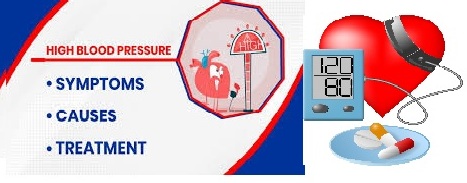

Millions of individuals worldwide suffer with hypertension, the medical term for high blood pressure, which is a common and dangerous medical condition. It is often referred to as the “silent killer” because it can go unnoticed for years while silently damaging the body’s organs. In this essay, we will delve into the causes, symptoms, and treatment options for high blood pressure, shedding light on this prevalent but manageable health issue.
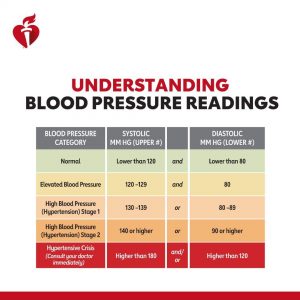
Lifestyle Factors:
One of the primary causes of high blood pressure is an unhealthy lifestyle. Factors such as a high-sodium diet, excessive alcohol consumption, smoking, and a sedentary lifestyle can contribute to hypertension. Obesity, in particular, is a significant risk factor for high blood pressure.
Genetics:
You might be more vulnerable if either of your parents or close relatives have a history of high blood pressure.
Age:
Blood pressure tends to increase with age. As individuals get older, the risk of developing hypertension rises. This is due to changes in the arteries and blood vessels over time.
Does Hypertension cause kidney problems?
Certain chronic health conditions can lead to high blood pressure such as kidney illnesses sleep apnea and most importantly diabetes.
Stress:
While stress itself may not directly cause hypertension, it can contribute to unhealthy coping mechanisms like overeating, excessive alcohol consumption, and lack of physical activity, which, in turn, raise blood pressure.
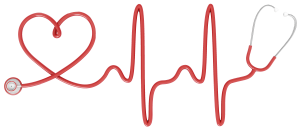
One of the unique aspects of high blood pressure is that it often presents no noticeable symptoms until it reaches an advanced stage. Routine Blood pressure check is very important to identify underlying cardiovascular problems. Some individuals may experience the following symptoms as their blood pressure rises significantly:
Blood pressure Causes Headaches:
Headaches: Persistent, throbbing headaches may occur.
Irregular Nose bleeding: High blood pressures can cause frequent and irregular nose bleedings.
Shortness of Breath: Difficulty breathing or shortness of breath may occur in advanced cases.
Dizziness: Dizziness and lightheaded can be signs of high blood pressure.
Blurred Vision: Vision problems, including blurred vision, may occur during hypertensive crises.
Back Pain: Yes, Hypertension is responsible for severe back pain, abdominal aches & Chest Pain along with Neck stiffness.
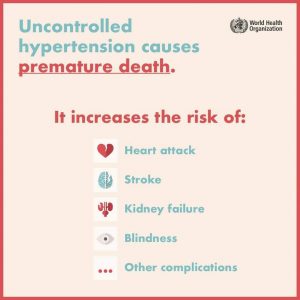
It’s important to note that these symptoms are not exclusive to high blood pressure and can be related to other health issues. If you experience any of these symptoms, it’s essential to consult a healthcare professional for a proper diagnosis.
High blood pressure is a widespread health concern with the potential for severe health complications if left unmanaged. It is a condition that often develops quietly, without noticeable symptoms, making regular blood pressure monitoring crucial. Fortunately, through lifestyle modifications, medication, and appropriate medical care, individuals can effectively manage their blood pressure and reduce their risk of related complications, such as heart disease, stroke, and kidney problems.
The good news is that high blood pressure is a manageable condition, and there are several effective treatment options available. The choice of treatment may depend on the severity of the hypertension and the individual’s overall health.
Lifestyle Modifications:
Lifestyle changes are often the first line of defence against high blood pressure. These include:
A heart-healthy diet: Reducing sodium intake, increasing potassium-rich foods, and following the DASH (Dietary Approaches to Stop Hypertension) diet.
Regular Exercise: Participate in daily healthy exercises and walk will certainly improve Blood flow & Heart working. It is recommended to do moderate exercise for 2.5 hours Daily.
Weight management: Achieving and maintaining a healthy weight.
Limiting alcohol and quitting smoking.
Medications:
If lifestyle changes alone do not bring blood pressure within a healthy range, healthcare professionals may prescribe medication. Various types of antihypertensive drugs are available, including:
Diuretics: These help the body remove excess sodium and water.
ACE Inhibitors: They relax blood vessels.
Beta-Blockers: These slow the heart rate and reduce the force of heart contractions.
Calcium Blockers: They are resposible for relaxing our blood vessels and improve blood flow.
Angiotensin II Receptor Blockers (ARBs): They block the action of a hormone that narrows blood vessels.
Combination Therapy:
In some cases, a combination of different medications may be necessary to achieve blood pressure control. This is typically reserved for more severe hypertension cases.
Monitoring and Follow-Up:
Blood pressure must be regularly monitored in order to assess treatment effectiveness and make necessary adjustments. Healthcare providers will work with patients to find the most effective treatment plan.
Dietary Approaches:
Some dietary approaches, such as reducing sodium intake, increasing potassium-rich foods, and adopting the DASH diet, can help lower blood pressure. These dietary changes can be particularly effective when combined with medication.
Stress Reduction:
Stress management techniques, such as meditation, yoga, and mindfulness, can be valuable tools in managing high blood pressure. Stress reduction can complement other treatments and improve overall cardiovascular health.
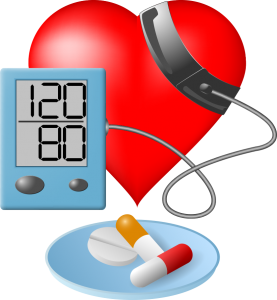
High blood pressure is a widespread health concern with the potential for severe health complications if left without management. It is a condition that often develops quietly, without noticeable symptoms, making regular blood pressure monitoring crucial. Fortunately, through lifestyle modifications, medication, and appropriate medical care, individuals can effectively manage their blood pressure and reduce their risk of related complications, such as heart disease, stroke, and kidney problems.
Read more Medical blogs
1: Most common infectious diseases
2. Blood Pressure and Dental Treatment: What You Need to Know
For USA Scholarships 2023-2024: Check our recommendations here
Al-Fateh College
Lane 07,Park Road<Islamabad
051-8891008
umerchatha444@gmail.com
Mon – Fri 9:00A.M. – 5:00P.M.